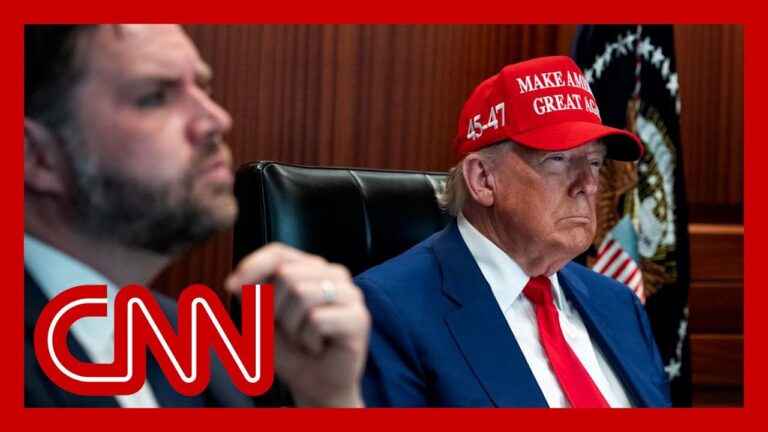Video at the bottom!
In recent news, President Trump announced a complete ceasefire agreement between Israel and Iran, which is set to take effect in six hours. The announcement came via his Truth Social platform, a rather unorthodox choice for such a significant development. As reporters, including Clarissa, analyzed the implications of this statement, discussions surrounding the recent military operations in Tehran were prominent.
Experts suggest Trump is attempting to shift his image from a warmaker to a peacemaker, leveraging his influence with Israeli Prime Minister Bibi Netanyahu. Meanwhile, Israel’s attacks on Iranian facilities have reportedly dealt significant blows to Iran’s military capabilities. These actions have left Israel in a position of strength, yet it raises questions about how negotiations might evolve given the historical positions of both countries.
The backdrop to these negotiations has been fraught, with Israel advocating for zero enrichment of nuclear material by Iran, while Iran insists on its right to enrich under the Nuclear Non-Proliferation Treaty (NPT). This fundamental disagreement continues to pose a significant barrier to progress.
As the announcement unfolded, reporters turned to White House correspondent Jeff Zeleny for updates on the implications of Trump’s post. Zeleny noted that the president seemed eager to move on from recent events, even as questions about the status and potential risk of Iran’s nuclear program lingered. With a classified briefing on Capitol Hill scheduled to address intelligence updates, both Republicans and Democrats are seeking clarity on the evolving situation.
Congressman Mike, a member of the House Intelligence Committee, expressed cautious optimism regarding the ceasefire, emphasizing the need for diplomatic engagement. However, he stressed the complicated history leading to the current moment, pointing out that Iran’s development of nuclear materials had escalated after the U.S. exited the previous agreement.
Despite Trump’s claims of obliterating Iran’s nuclear capabilities, Congressman Mike highlighted the complicated nature of intelligence assessments in such scenarios, implying that the reality was less definitive than the president’s assertions would suggest. He indicated that rolling back Iran’s advancements would be a challenging process, stressing the importance of a realistic understanding of the dynamics at play.
In summary, as the situation develops, the challenge remains to strike a balance between diplomacy and the complex realities on the ground, particularly regarding the contentious issue of Iran’s nuclear program and its associated risks.


